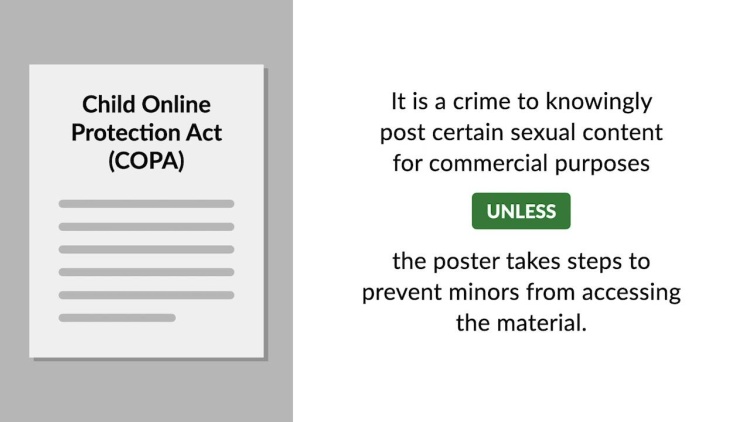Ashcroft v. American Civil Liberties Union (II)
United States Supreme Court
542 U.S. 656 (2004)
- Written by Megan Petersen, JD
Facts
Internet-content providers and other free-speech activists (the activists) (plaintiffs) sought a preliminary injunction to prevent enforcement of the Child Online Protection Act (COPA), a statute enacted to guard minors from sexually explicit material on the internet. The district court granted a preliminary injunction, holding that COPA would likely be found unconstitutional because the activists were likely to succeed in proving that the statute was not the least restrictive way to guard minors from speech defined as criminal by the statute. The government appealed the injunction. The court of appeals affirmed the district court’s decision to grant the injunction on the grounds that the statute’s “community standards” language was unconstitutionally overbroad. The Supreme Court granted certiorari, reversed the finding that the “community standards” language alone made the statute overbroad, and remanded the case to the court of appeals. The court of appeals affirmed the district court’s grant of the preliminary injunction again on the grounds that COPA was not narrowly tailored to serve a compelling government interest, was overbroad, and was not the least restrictive way to protect minors from sexually explicit material online. The government appealed, and the Supreme Court again granted certiorari.
Rule of Law
Issue
Holding and Reasoning (Kennedy, J.)
Dissent (Scalia, J.)
Dissent (Breyer, J.)
What to do next…
Here's why 904,000 law students have relied on our case briefs:
- Written by law professors and practitioners, not other law students. 47,100 briefs, keyed to 995 casebooks. Top-notch customer support.
- The right amount of information, includes the facts, issues, rule of law, holding and reasoning, and any concurrences and dissents.
- Access in your classes, works on your mobile and tablet. Massive library of related video lessons and high quality multiple-choice questions.
- Easy to use, uniform format for every case brief. Written in plain English, not in legalese. Our briefs summarize and simplify; they don’t just repeat the court’s language.





